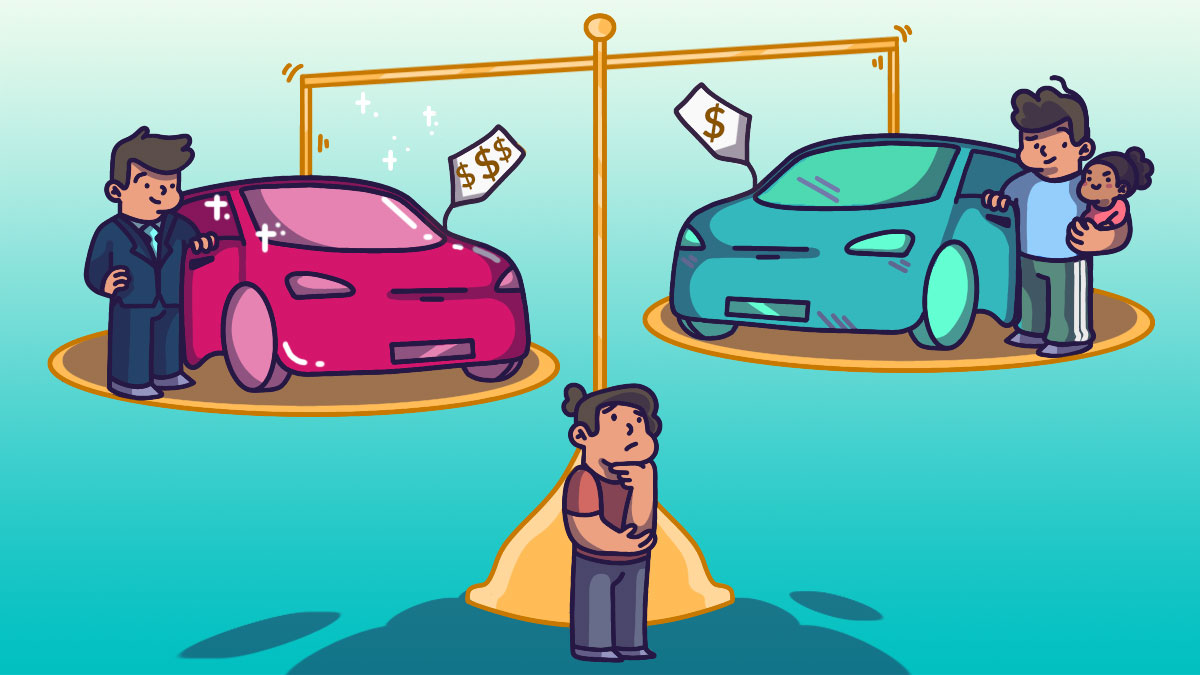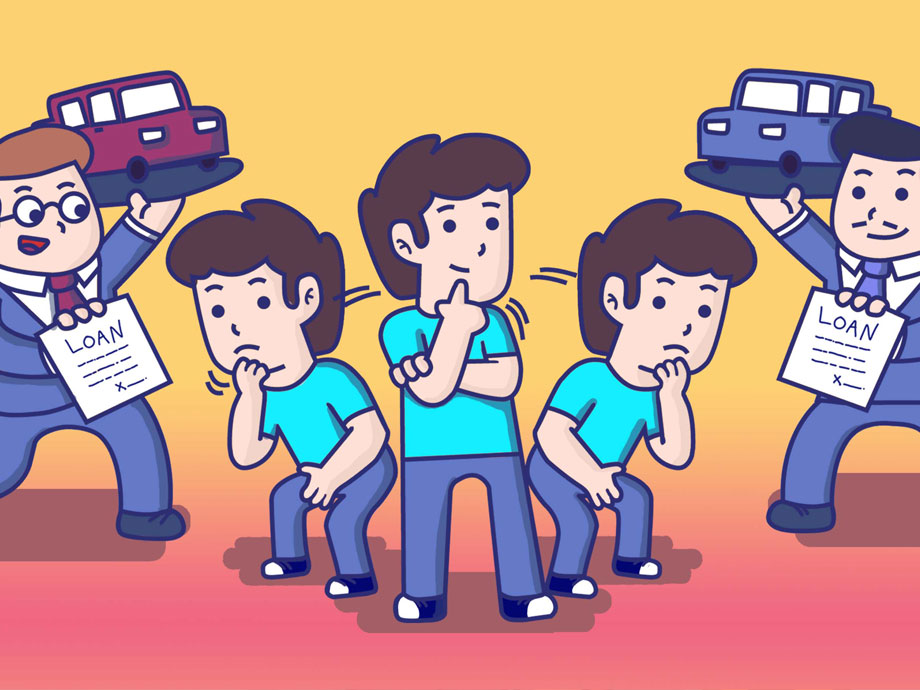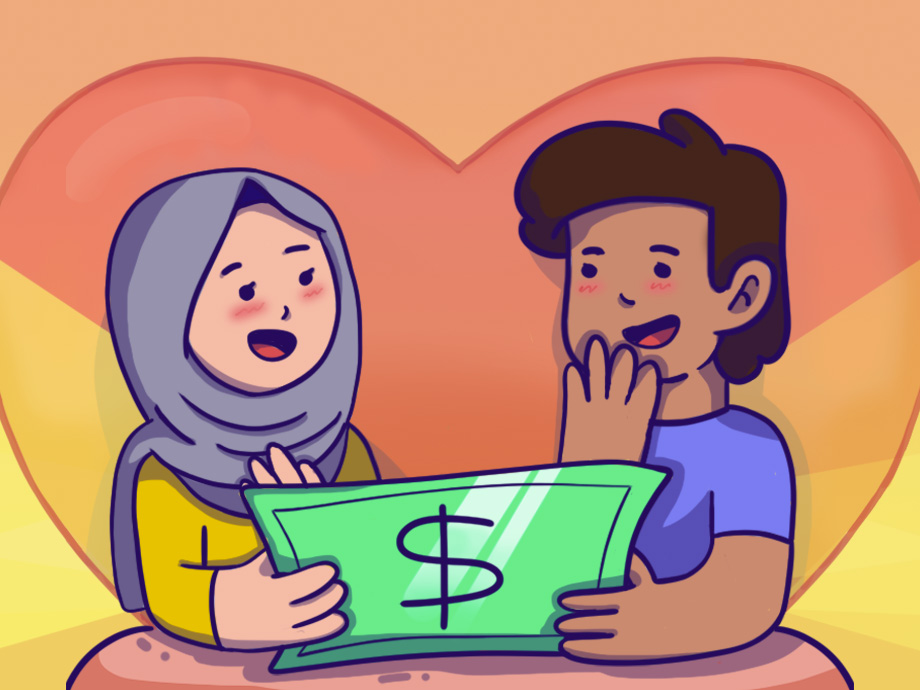Budgeting | Personal Finance | Article
New Car Vs. Used Car – Which Is Better Value for Money?
by Bakhtiar HB | 10 Feb 2021 | 4 mins read

According to global figures, the average person will own approximately eight or nine cars over their lifetime.
While there is no data on the average car price in Brunei, a quick look at the latest price list from the Department of Economic Planning and Statistics gives us a median car price of around BND$35,000.
Throwing these rough estimates around, the average Bruneian may spend between $280,000 and $315,000 on automobiles in their life time, as much as one might spend on a new house.
But how much of that money is really lost?
Before taking into account the cost of maintenance, fuel and repairs, how much are we really losing when we drive out of that dealership with a shiny new car?
Would we be better off buying a used car if we’re likely to change vehicles between eight and nine times within our lifetime?
Let’s take a deeper dive into the value proposition that both new and used cars present.
The Maths of Depreciation
I remember my first car. A brand new black, sporty saloon that I bought for $47,000.
It had a sunroof, sport wheels and a nicely-tuned turbo-charged engine that would get me town with a smile on my face – for maybe the first two months.
After the novelty wore off, how much did the car really cost me?
General rule of thumb is when you drive that car out of the showroom, you’ve lost 25% of the value of the on-the-road price.
So essentially my car was worth around $35,000 after my first few drives. Great.
Following the second year of ownership, you lose another 20% of value, then 15% for the third year, and 10% for subsequent years.
Doing the math, after seven years my car was theoretically worth around $15,000 — if you can find someone to buy it at that valuation. (Spoiler alert: I sold that car for $11,000 after seven years.)
Now say you buy a used car that is around three years old, you’re saving money on those brutal first three years where you lose around 45% of the value of that new car.
Let’s apply this formula to a $30,000 car.
Depreciation of new car:
New car purchased at $30,000
Value after 3 years = $15,300
Second-hand car (three-years old) depreciation:
Used car purchased at $30,000
Value after 3 years = $21,870
Essentially, you would be losing an extra $6,000 from depreciation if you bought a new car at the same price as a second-hand car.
It’s useful to think of this formula when deciding whether a brand new car is worth that much to you!
Getting Bang For Your Buck
If you are in the market for a new car, you are usually looking to get the best value for your money.
Taking that budget of $30,000 again, think about what that money could get you in the new car market versus what you would get in a second-hand car market.
In the used car market, $30,000 could move you into the luxury segment, getting you a more feature-packed, premium vehicle for the same amount of money.
And if you chose to move on a few years later, you wouldn’t be losing as much money compared to if you bought a new car.
Banishing That ‘Used Car’ Stigma
With the advent of new technology, cars are more dependable today than they ever have been.
If they are treated well, cars often can go over 100,000 km before needing major repairs.
Getting a used car with low mileage could really be a great value proposition for prospective car buyers out there.
And today, free servicing and warranties are offered by both new car dealers and used car dealers.
Some of the major used car lots in Brunei have their own Class ‘A’ workshops and are happy to offer great deals with free servicing and warranties for extended periods of time.
Gone are the ‘used car salesmen’ stereotypes.
What It Means for You
These are just some of the things you might want to think about before making a new car purchase.
I would also advise you to check out “pre-approved” vehicles at new car dealerships — these are essentially pre-owned cars that have been traded in, or are test drive models, that have been fixed up by their respective dealers.
It’s also important to know that there are exceptions to the rule.
Some car brands definitely hold their value much better than others — such as Toyota and Mercedes — and it’s also worth checking these out.
With some of these prestige brands, it might actually make sense to buy a new model over a used model when you throw in preferred financing rates and other incentives.
Just remember: depreciation can result in a lot of wasted dollars in the long run, especially if you are going to change cars several times over your life time.













